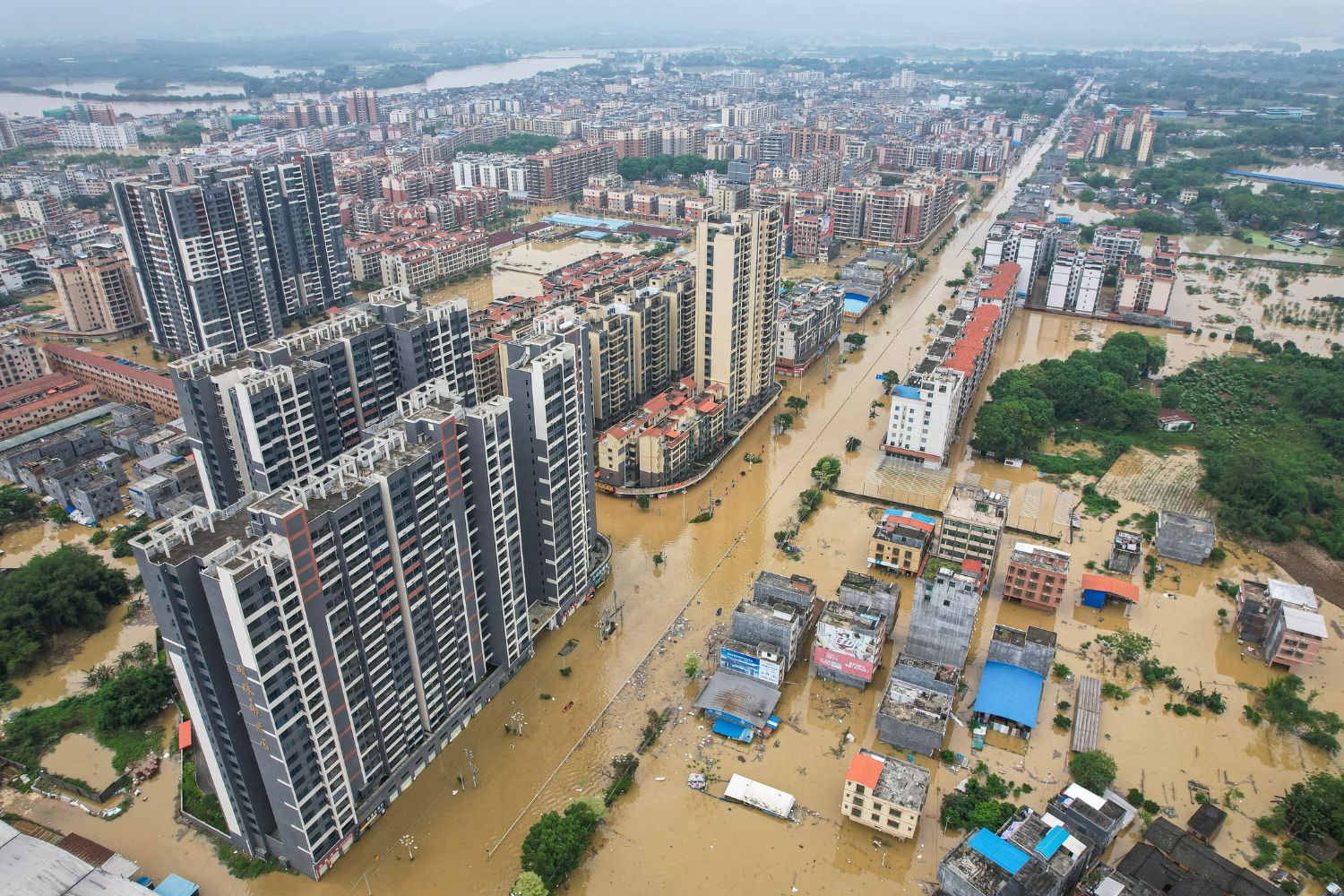Susan Smith-Peter, City University of New York
Do names on a map matter? When they are in border territories, the answer is probably “yes.”
Earlier in 2023, China’s Ministry of Natural Resources ordered that new maps must use the former Chinese names of its lost territories in what is now Russia’s Far East.
Vladivostok, home to Russia’s Pacific fleet headquarters, became Haishenwai; Sakhalin Island became Kuyedao.
Then in late August, the ministry released a map that showed the disputed Russian territory of Bolshoi Ussuriysky Island within China’s borders.
These map moves come amid growing chatter and even calls in Western foreign policy circles for the disintegration of the Russian Federation into a multitude of smaller states.
The thinking is, being split into smaller states would blunt Russia’s challenge to the West and its ability to carry on a war in Ukraine.
As a scholar of Russian regional identity and history, I believe the prospect of a broken-up Russia is unlikely, to say the least.
But talk of Russia’s disintegration and the change in map names taps into themes worth exploring: Is there much appetite for independence in the far regions of the Russian state?
And if there were to be breakaway regions in the Far East, would that be to the benefit of the West – or to China?
Rise of the ‘breakup boosters’
Those calling for, or predicting, the disintegration of the Russian Federation have grown in numbers since the start of the Ukraine war. In the book “Failed State: A guide to Russia’s Rupture,” political scientist Janusz Bugajski argues that the territories of the Russian Federation will in time declare independence – like during the fall of the Soviet Union in 1991.
This, he and others argue, would be good for everyone outside Russia. A rump Russian state would have “reduced capabilities to attack neighbors,” Bugajski argues.
The Washington Post’s David Ignatius has a gloomier view of Russian disintegration, writing in August that it would provide “a devil’s playground” that could pose a danger to the West.
Either way, a growing number of analysts are of a mind that, in the words of Russia scholar Alexander J. Motyl, it is “time to start taking the potential disintegration of Russia seriously.”
Having worked on the history of Russian regionalism for two decades, I see serious obstacles to territories declaring independence.
It is certainly true that centralized authority has been to the detriment – both economically and culturally – to some of the Russian Federation’s 83 regions.
But there is a lack of mass public support for autonomy – that is, the ability to decide local and regional matters within a larger state – let alone full-blown independence.
Not all regions in Russia are the same. In some, such as Tatarstan and Dagestan, autonomy has a genuine mass appeal.
But most Russian regions that favor greater autonomy are in locations that would make it difficult for them to declare independence outright because they would still be surrounded by the Russian Federation.
Those in a locations more suited to independence – say, those that have borders with neighboring countries – often face other difficulties, such as being close to China.
In Russia’s Far East, there is concern among would-be breakaways that independence could lead to the possibility of an interventionist China either taking over or at least exerting its influence.
Problems of geography
“Breakup boosters” – the term I use to describe those advocating for Russia’s disintegration – assume that regions in the Russian Federation all have aspirations for independence.
But an analysis of Russian regions by Adam Lenton of Wake Forest University found a highly variable level of support for autonomy across Russian regions.
The data shows that in many of the regions that have exiled independence leaders and are talked about of being potential breakaways, the public doesn’t support that goal.
The data shows support for autonomy rather than independence. Autonomy would make the Russian Federation a real federation.
The region with by far the most support for autonomy is Tatarstan, a subnational republic led by Turkic-speaking Tatar people 447 miles south of Moscow.
But arguing that this should lead to independence makes little sense – it would be completely surrounded by a hostile Russian Federation. An independent foreign and defense policy in such circumstances would be almost impossible.
Some Tatars have themselves argued against independence on this ground.
The regions of the North Caucasus have some of the highest scores, plus a foreign border with Georgia making it potentially a better candidate for independence. But the region has a bitter experience with attempts to break away. Chechnya’s attempt at independence failed after a long and bloody war.
In Siberia, the region of Tuva has high levels of support for autonomy. But it is in China’s backyard – and this would make it geographically vulnerable.
ALSO READ: Russia dismisses new U.S. sanctions: ‘You will never defeat Moscow’
Russia’s Far East, China’s backyard
Russia’s Far East includes the Amur region along the border with China and Vladivostok. These were taken from China by Russia during the mid-19th century, when Russian general Nikolai Murav’ev-Amurskii used Russia’s greater firepower and more modern army to defeat China.
But the status of territories in the region remained contentious. In 1969, China and the Soviet Union fought a seven-month undeclared war over border issues.
After 1991, China and Russia went through several rounds of talks and treaties to ensure that the border between them was ratified by both parties, with the last treaty taking place in 2004. Even so, not all groups within China accept the results.
Textbooks in China still mention the loss of 1.5 million square kilometers to Russia and note that Mao Zedong, the founder of the People’s Republic of China, said he would “present the bill,” meaning that Russia would have to pay what Mao perceived as the theft of territory.
The fear among some Russians – and those in the West – is that China could turn Russia’s Far East into its satellite, using it as a source of raw materials such as diamonds and gold, as well as oil and gas. And with economic hegemony comes political influence.
China faces challenges that make increasing its influence in Russia’s Far East particularly attractive now, including what experts see as a structural economic crisis and a rural education gap. Territorial expansion could provide economic growth while serving as a distraction from domestic issues.
ALSO READ: BRICS Currency: Russian economist highlights benefits for international trade
But the breakup of the Russian Federation could also pose a security threat to China. The experience of Xinjiang serves as a warning. The region, which has been the focus of China’s persecution of the Muslim Uyghur people, had twice been a breakaway region under the protection of former Soviet leader Josef Stalin.
Furthermore, the Chinese Communist Party will be fearful that any unrest in areas of the Russian Federation that are close to Xinjiang might spill over.
Given all this, the argument from breakup boosters that no one, other than President Vladimir Putin, would lose if the Russian Federation disintegrated is, I believe, simply not sustainable.
And rather than hastening the disintegration of the Russian Federation, polls suggest that the war in Ukraine is having a unifying effect. Many Russians who were originally against the war have become reluctant supporters of it – in part because of propaganda that has emphasized the threat from the West to Russia’s territorial integrity. Since 2021, Russia’s military doctrine has highlighted this threat, stating that one of the main issues facing the nation was groups “aimed at violating the unity and territorial integrity of the Russian Federation.”
The calls in the West for the breakup of the Russian Federation might suggest to the Russian public that Putin’s territorial fears could become a reality. Moreover, dreams of a broken Russian Federation might distract those in the West from the very real problem of helping Ukraine protect its own territorial integrity.
Susan Smith-Peter, Professor of Russian History, City University of New York
*This article is republished from The Conversation under a Creative Commons license. Read the original article.
NOW READ: Israel-Hamas war puts China’s strategy of ‘balanced diplomacy’ in the Middle East at risk













